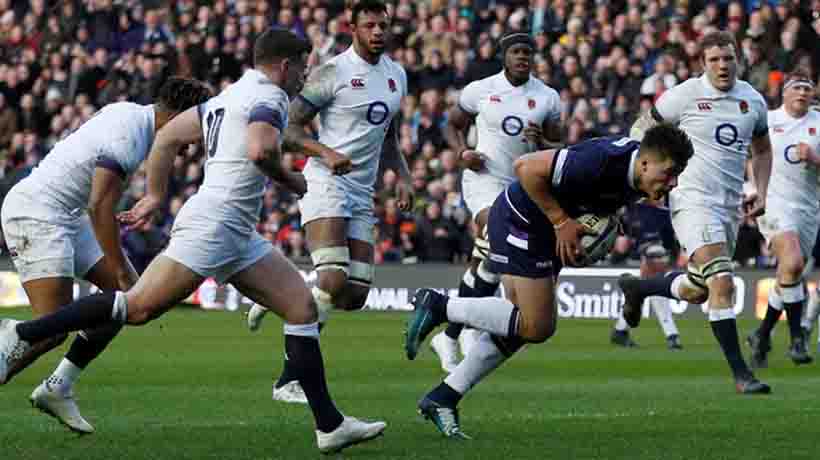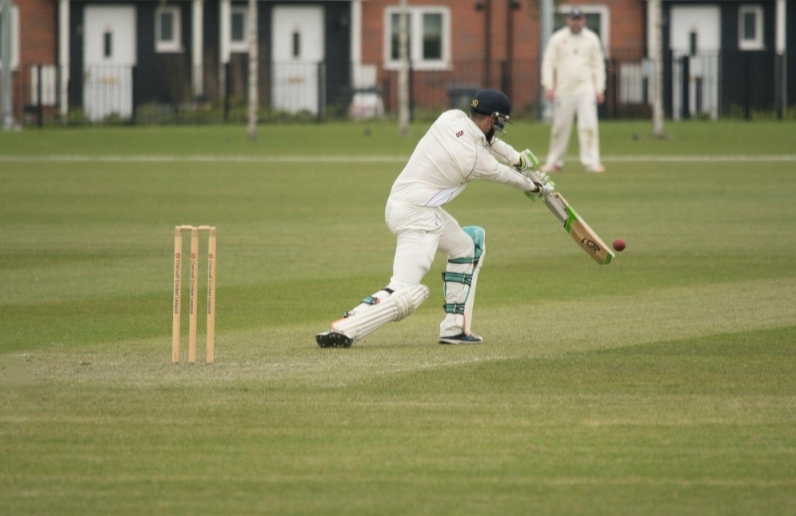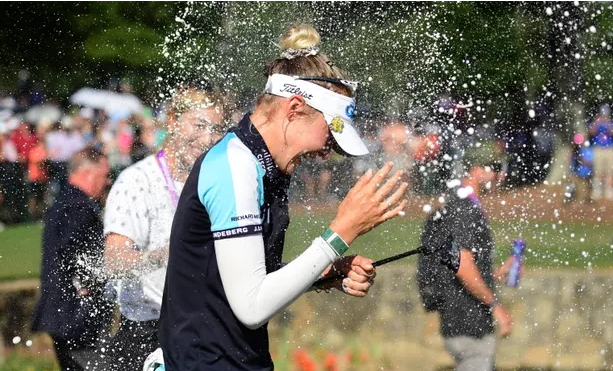Trending Now
- IPL 2024 begins with a bang. First contest between CSK and RCB.
- Election commission allots mike symbol to Naam Thamizhar Katchi
- AIADMK promises to urge for AIIMS in Coimbatore, in its election manifesto.
- Ponmudi becomes higher education minister.
Sports
Stepping outside their back yards could help English players grow
![]() February 27, 2018
February 27, 2018
Scotland, who stunned England in the Six Nations, included five players plus the coach, Gregor Townsend, shaped by a spell outside domestic comfort zones
Maybe it is just a coincidence but the following among Scotland’s weekend heroes all share something in common. What is it that links Finn Russell, John Barclay, Grant Gilchrist, Jonny Gray, Huw Jones and Gregor Townsend, not to mention Ireland’s latest man-of-the-match centre Chris Farrell? Here is a clue: all the leading modern Test coaches have also done something similar, as did England’s World Cup-winning captain, Martin Johnson.
The answer is thought-provoking: each has been fundamentally shaped by a spell outside his domestic comfort zone. The smart, forward-thinking Townsend could have remained a big fish in the Borders for his entire career; instead he sought to experience club rugby in Australia, France, England and South Africa. Before returning to Scotland Jones shot to prominence with Western Province having headed to South Africa after school with no English clubs showing any interest. Farrell played 74 games for Grenoble in France; small wonder he looked entirely at ease on an unfamiliar stage against Wales last Saturday.
Barclay, Gilchrist, Gray and Russell are all past recipients of the John Macphail Rugby Scholarship, funded by the Robertson Trust, which allows the most talented young Scottish players and coaches to spend a few months overseas having their eyes opened to top‑level rugby standards in the southern hemisphere. The quartet were dispatched to Canterbury in New Zealand in 2005, 2011, 2012 and 2013 respectively; the latest intake comprising Angus Fraser of Dundee HSFP, Andrew Jardine of Melrose and Guy Kelly of Biggar flew out to South Africa in January for five months.
Johnson, famously, represented NZ Colts after initially heading down to play a bit of club rugby. The man who brought him over, John Albert, had written to the Rugby Football Union asking if it could forward his contact details to their age-group players; five ended up coming to New Zealand. For Johnson it was like stepping into a parallel universe. “We picked him up at Auckland and on the drive down to Taupo he kept flinching,” Albert said later. “Every time a logging truck went past he ducked. He was petrified.” The locals, apparently, were not instantly impressed. “They weren’t all brilliant rugby players but they were tough. They thought Martin was soft and told him to harden up.”
The rest is rugby history. A shoulder injury frustrated any prospect of New Zealand poaching Johnson – “There’s nothing surer than he would have been an All Black,” said the late Sir Colin Meads – but the big man did arrive back in the Midlands with a keener appreciation of what properly aggressive forward play looked and felt like. Bumping into him outside Murrayfield on Saturday – and listening to him on television predicting a massive reaction in Paris on Saturday week – was to be reminded how much England relied on his rugby intelligence and leadership when he was captain.
It feels like an area England should be re-examining now. Dylan Hartley is another example of someone whose Kiwi upbringing has shaped his hard-nosed rugby outlook – it is probably among the reasons why Eddie Jones appointed him captain. But how many of England’s younger players have had their characters forged outside the academy system, off the beaten track, away from the protective arms of their local club? Aside from the Fiji-born Nathan Hughes and Mako Vunipola very few of Saturday’s 23 have lived or played club rugby outside England for any length of time. Joe Launchbury had a short stint as a young man in South Africa and Sam Underhill has played and studied in Wales but the rest have predominantly learned all they know about rugby and life in their own back yards, save for tours and away games.
Contrast that with Chris Ashton, Nick Abendanon, David Strettle, Jonny Wilkinson, James Haskell and Carl Fearns, all of whom have moved to France (plus Japan and New Zealand in Haskell’s case) and enjoyed a new lease of rugby life. It is a similarly revealing story with coaches. Stuart Lancaster, Andy Farrell, Ben Ryan and Richard Cockerill can all testify to the value of operating in a foreign environment, as would Jones, Joe Schmidt, Warren Gatland, Conor O’Shea, Mike Catt and others. Of the best up-and-coming young English coaches only Steve Borthwick, Dave Walder, Alex Sanderson, Joe Worsley and Rory Teague have spent significant spells overseas.
It is an area the RFU is looking into, with talk of sabbaticals for aspiring homegrown coaches. As things stand no English players are permitted to play outside England if they wish to remain eligible for the national team. That stance clearly has its benefits but, equally, does not always foster the type of instinctive resourcefulness England needed to prosper in hostile, unfamiliar circumstances. It was also instructive to listen to Townsend, Barclay, Russell and Huw Jones after the match: all came across as impressively normal, well‑rounded human beings as opposed to endlessly briefed battery hens. A coincidence? Possibly not.
BACK TO THE FUTURE
Perhaps the most interesting aspect of Scotland’s Calcutta Cup success was the specialist type of player around whom it was based. Tearaway, ground-hogging flankers and free-spirited fly-halves have been out of fashion for some years; the modern Test lexicon is peppered instead with endless talk of “winning the collisions”, “physicality” and “pragmatism”. All hail, then, Hamish Watson, John Barclay and Finn Russell for showing games can still be won in other ways. Hopefully it will encourage others to question the orthodoxy that has latterly overlooked the value of quick thinking, pace off the mark, artful dodging and, when appropriate, the occasional visionary long pass. If it helps England, in particular, to unearth a modern-day successor to Neil Back, last Saturday’s defeat will not have been in vain.
ONE TO WATCH
There have been some very interesting results in the Premiership and Pro14 during the Six Nations and this weekend could also prove significant. In England the top two collide when Exeter face Saracens at Sandy Park; a Chiefs win could see the visitors edged out of automatic home draw territory. In Llanelli, Scarlets and Leinster will offer an appetising sequel to the Ireland-Wales game in Dublin, with both sides jostling for the leadership of Conference B.
























